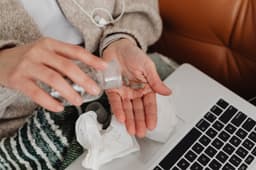Your partner just started PPD medication, but she’s still struggling. You want to help, but feel lost about how to support her.
Watching her navigate medication side effects, stigma, and daily stress can leave you feeling helpless. Postpartum depression treatment isn’t a solo journey.
Partners play a vital role in making medication work effectively.
The Struggle Without Support
Your partner faces postpartum depression alone. She takes medication but feels overwhelmed. Without your support, her journey becomes harder.
Let’s explore why.
1. Isolation and Overwhelm
New moms using PPD medication often feel stranded. Side effects like fatigue or nausea add physical strain. Emotional weight makes daily tasks exhausting.
Imagine climbing a steep hill carrying heavy bags. That’s PPD without support.
Stigma silences her, too. She fears judgment for needing medication. This isolation slows her healing.
2. Misunderstandings About Medication
Myths harm progress. Some believe PPD medication means weakness. Others fear it changes personality.
These false ideas create guilt.
Your partner might hide struggles to seem “strong.” Truth? Medication repairs chemical imbalances.
Like insulin for diabetes, it’s medical care. Ignorance delays recovery.
3. The Domino Effect on Family Life
When moms burn out, families feel it. She forgets doses during chaotic mornings. Kids sense her stress. Relationships grow tense. Work and chores pile up.
Untreated PPD strains everyone. Studies show partners’ mental health often suffers too.
Support starts here: Our expert PPD counseling sessions equip you with tools to help you thrive.
The Relief of Strong Partnership
With your support, PPD medication becomes a path to healing. You help turn isolation into teamwork. Recovery feels possible.
A United Front Against PPD
Partners who share the load create safety. When you handle night feedings or chores, she rests.
Proper rest lets medication work better. Studies show moms with engaged partners recover faster. You become her anchor.
A Thriving Family Dynamic
Calm parents raise calm kids. When medication eases her symptoms, laughter returns. Meals feel lighter. Bedtimes become peaceful.
Your support protects the whole family’s well-being.
Did you know? Our PPD medication management guide helps track doses and moods.
Your Action Plan for Support
Now, let’s turn knowledge into action. Use these steps to become her strongest ally.
1. Educate Yourself on PPD Medication
Learn the basics. Know how her medication works. Understand common side effects like drowsiness or dry mouth.
Ask her doctor: "How long until we see improvement?"
This shows you care.
2. Be Her Logistics Manager
Simple systems prevent missed doses.
- Set phone alarms for her doses.
- Track refills and handle pharmacy pickups.
- Organize pills in a weekly dispenser.
3. Master Emotional Support Tactics
Listen more. Fix less. When she shares struggles, say:
- "This sounds really tough."
- "I’m here with you."
Avoid: "Just stay positive!" Validation speeds healing.
4. Navigate Breastfeeding + Medication
Help research safety. Attend doctor visits. Ask:
- "Is this medication breastfeeding-safe?"
- "Are there alternatives if side effects hit?"
Our guide How to Talk to Your Doctor About PPD Medication clarifies these conversations.
5. Share the Invisible Work
Take over hidden tasks during her low-energy hours:
- Morning baby duty while she rests
- Meal prep for the week
- Laundry or dish duty silently
These actions free up her mental space for recovery.
Conclusion: You Hold the Key to Her Healing Journey
You’ve seen how powerful your partnership can be. From isolation to teamwork, your support transforms her PPD medication journey.
It’s not about grand gestures. It’s about steady presence.
Remember these key points:
- Education removes fear (Know her medication)
- Logistics create consistency (Dose reminders, pharmacy runs)
- Emotional safety speeds healing (Listen > Fix)
- Shared tasks free her mind (Take the invisible work)
Your role matters. Like oxygen masks on planes, securing hers helps everyone. When she thrives, your family thrives.
Breastfeeding challenges or medication doubts feel lighter with you beside her.




